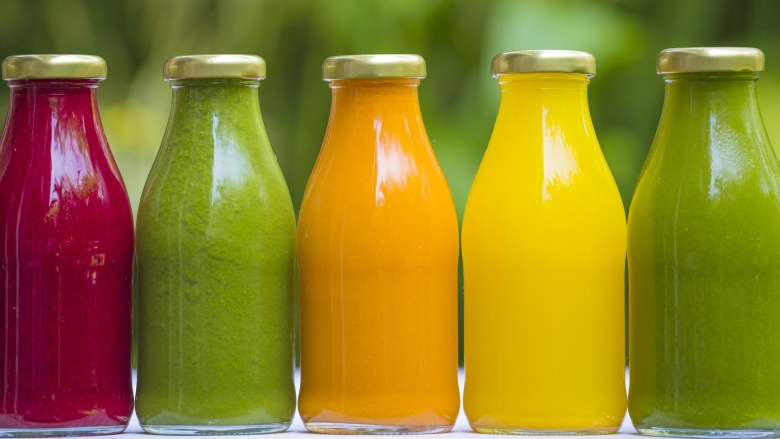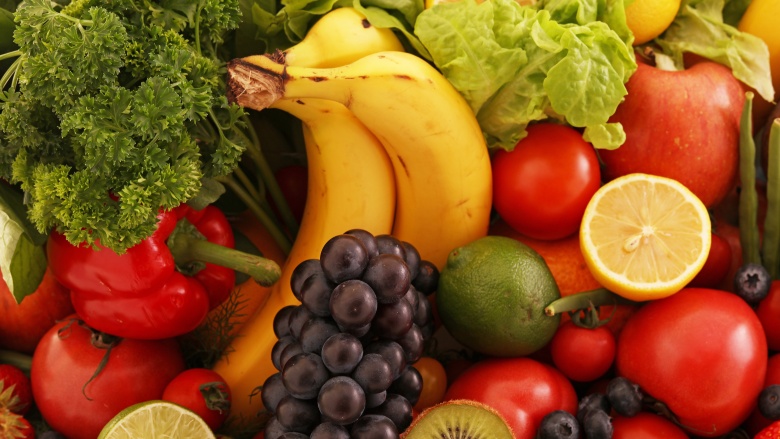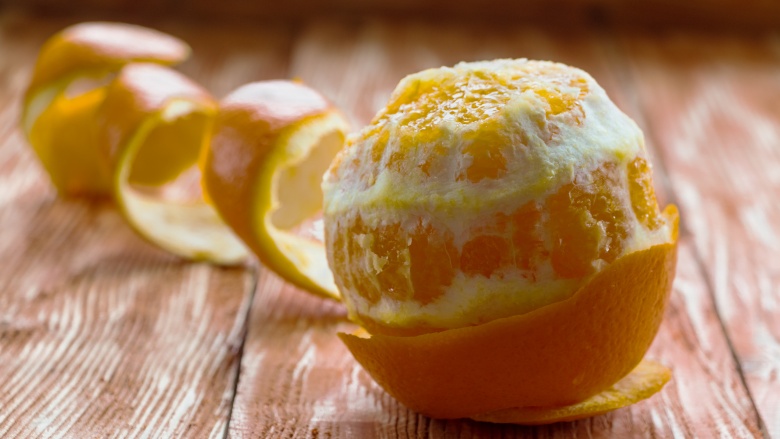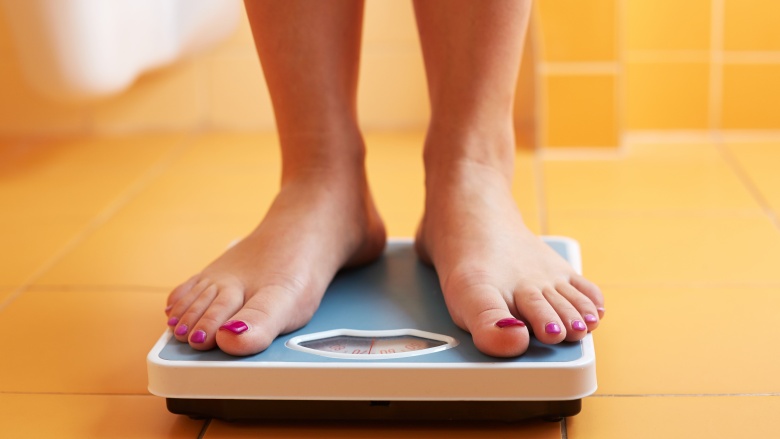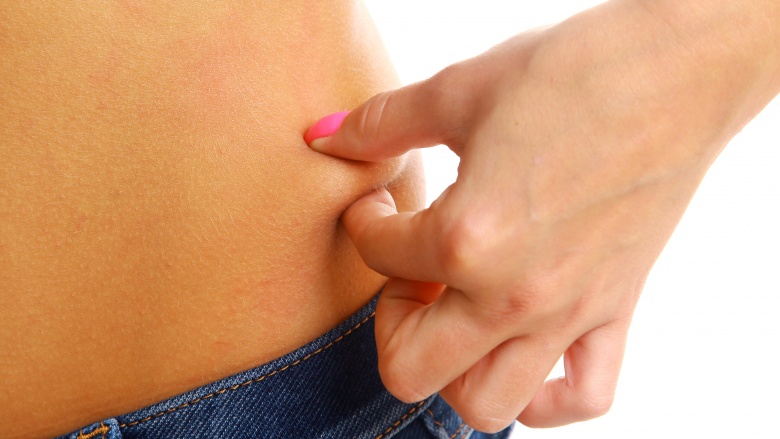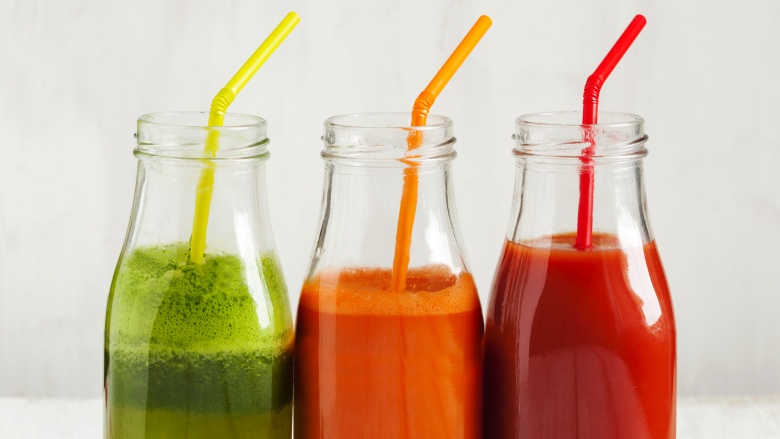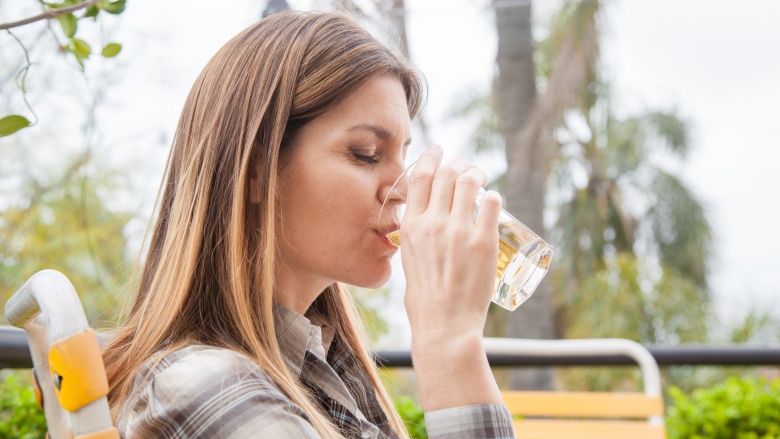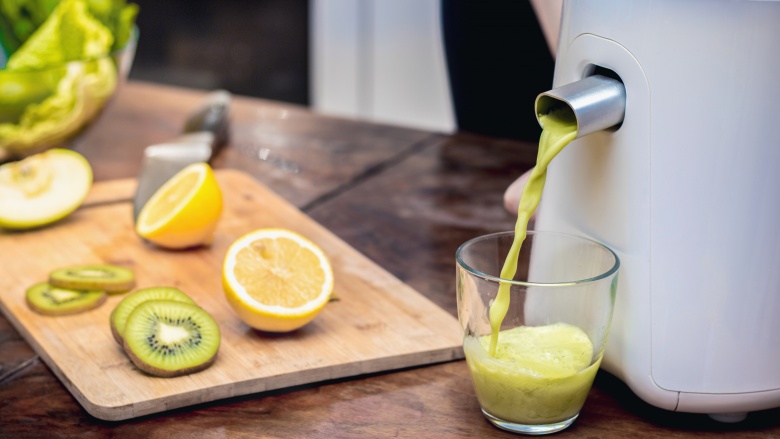What Really Happens To Your Body When You Go On A Juice Cleanse
As a wellness writer and co-author of the weight loss book, Is Your Job Making You Fat? How to Lose the Office 15...and More!, I'm often asked questions about juice cleanses. Are they safe? Are they effective? Are they worth the cost? After all, juice cleanses have become very popular and trendy in recent years, as many famous celebrities have touted juice cleanses as their go-to diet detoxes and number one weight loss technique. However, when looking more closely at juice fasts, they're actually a fast way to harm your physical and emotional health. So if you're toying with the idea of jumping on the juice cleanse bandwagon, it's important to recognize what's really happening to your body when you go on this type of eating plan. In a word, drinker beware!
What is a juice cleanse?
In order to understand what happens to your body when you go on a juice cleanse, it's important to know exactly what a juice cleanse entails. In the most basic sense, a juice cleanse or a juice fast means that you drink only the juices of fruits and vegetables for a set number of days. Some juice fasts also incorporate small amounts of certain nut milks, such as almond milk or cashew milk, as well as different plants and flavorings, such as ginger or vanilla, into their recipes.
While the length of a juice fast can vary from plan to plan, these fasts can typically last for three to five days, while some people choose to fast for a few weeks. And when it comes to the juice itself, many people prefer to juice their own fruits and vegetables at home with a juicer, while others opt to purchase their juices from the many different companies and vendors who specialize in these types of cleanses. In fact, there's a vast array of different products and types of cleanses from which to choose, all depending upon your taste preferences, desired weight loss or personal goal for the fast, preferred length of time on the fast, as well as what you're willing to pay.
In fact, it should be noted that juice cleanses can be quite expensive, as some plans can cost up to $70 per day, which doesn't necessarily include the shipping of the juices, and even the most basic three-day juice fast can easily reach $200. Along these lines, juicers themselves can also be a bit pricey, with the mean cost at around $200, while the top-of-the-line juicer can range up to $10,000. And don't forget that you have to pay for your daily produce. So while you may be looking to cleanse your system with the juice, it's actually your wallet that can end up getting cleaned out instead.
The good news: you're increasing your body's intake of fruits and vegetables
When it comes to juice cleanses, one of the health benefits for your body, albeit few, is that you increase your daily intake of fruits and vegetables. If you're someone who typically chooses candy over kale, this can be an appealing attribute. After all, it's been shown that consuming more fruits and vegetables can be highly beneficial to your health for numerous reasons.
Not only does increasing your daily regimen of fruits and vegetables help to fight against certain types of cancers, but it also helps to protect your body from heart disease, as noted in The Journal of Nutrition. Plus, the fruits and vegetables included in these types of cleanses are some of the healthiest in the world, such as spinach, kale, blueberries, and oranges. These foods are actually known as "superfoods," meaning they're packed with antioxidants that have powerful disease-fighting capabilities that can benefit your entire body.
You're depriving your body of fiber
While it's clear that upping your intake of fruits and vegetables is a step in the right direction toward a healthier you, going on a juice cleanse isn't the best way to accomplish this important goal. On the contrary, one of the major problems with juicing fruits and vegetables is that the process removes one of their most valuable components — their fiber content.
In fact, the fiber in fruits and vegetables is mostly found in the skin, pulp, and membranes, all of which are frequently absent from the juices. However, fiber is extremely important for your body, as it helps to prevent constipation and bloating, can help to stabilize your blood sugar, and can even aid in reducing your cholesterol levels. So when you embark on a juice cleanse, you're actually depriving your body of the imperative role that fiber plays.
Further, fiber also helps you feel fuller longer, and research has found that simply increasing your fiber intake can help you lose weight, as noted in a study in the Annals of Internal Medicine. So while you may be embarking on a juice cleanse to help you on your weight loss journey, a juice cleanse can actually be a counterproductive step. While some die-hard juice cleanse fans claim that juicing makes it easier for your body to absorb the key vitamins and minerals from fruits and vegetables and that reducing your fiber intake can help to give your digestive organs a much-needed break, the reality is that there's no evidence supporting these assertions, as noted by the Mayo Clinic.
Your body will initially lose weight
One of the major reasons why many people embark on a juice cleanse is that they believe it'll help them accomplish their weight loss goals. As discussed in the New York Times, the average juice cleanse typically limits your caloric intake to 1,000 to 1,200 calories per day. However, depending upon a woman's activity, the USDA Center for Nutrition Policy and Promotion recommends that women in their thirties through fifties consume anywhere between 1,800 to 2,200 calories per day in order to maintain a healthy weight.
So if you're wondering why women can initially lose weight while they're on a juice cleanse, the answer lies in the simple mathematics of a reduced daily intake of calories. And as noted in The New England Journal of Medicine, diets that lower one's caloric intake reduce his or her weight, regardless of his or her inclusion of fats, carbohydrates, or protein into his or her diet. In other words, you can lose weight simply by reducing calories, despite the amount of fat, carbohydrates, and protein that you may consume.
So when looking more closely at the claims of juices cleanses and their unique ability to jump-start weight loss, it's important to recognize the role that basic caloric restriction plays in the equation. With this in mind, when you significantly decrease your intake of calories by going on a juice fast, your body is really losing fluids instead of fat, and you're also causing your body to lose muscle mass. So while you may see the numbers on the scale go down when you go on a juice cleanse, it's important to recognize exactly what kind of weight you're really losing.
The bad news: you're setting your body up for future weight gain
It's important to recognize the ways in which a juice cleanse sets the stage for weight gain in the future. While you may initially lose weight on a juice cleanse due to caloric restriction, it's difficult to keep the weight off. And to make matters worse, the changes that occur in your body while on the cleanse can actually make it harder for you to lose weight later.
As noted in the journal PLoS ONE, limiting your caloric intake causes metabolic changes that can impede your ability to maintain weight loss. In other words, caloric restriction from a juice cleanse can cause your body's metabolic rate to slow down, and when your body has to function on a lower number of calories, your metabolic rate decreases and becomes more inefficient at burning calories. That means that when you return to your normal eating patterns after finishing your juice cleanse, it'll likely be harder for you to burn these extra calories and maintain the weight loss.
In fact, you can even gain weight after you conclude your juice fast because of your slowed metabolism, and if that's not alarming enough, most of this weight will return to your body as fat. Along these same lines, a study in Research in Complementary and Natural Classical Medicine revealed that while your LDL cholesterol (the bad kind) can decrease while on a juice fast, your LDL numbers will go back up after you conclude the cleanse. And in the case of this study, this relapse occurred approximately one week later.
You're loading up your body with sugar
While you may think that restricting yourself to only drinking these fruit and vegetable juices on the cleanse is a healthy choice, the reality is that you're just filling your body with sugar. Each bottle of juice could contain up to 45 grams of sugar, and depending upon how many bottles you drink in a day for your specific cleanse, you're putting your body on a sugar overload. In fact, some of the cleanses are premised on drinking six bottles per day!
Just as a reference point, it's important to note that one can of soda contains approximately 40 grams of sugar, so the amount of sugar you ingest during a juice cleanse can be pretty alarming. The problem is that when you load up on an immense amount of sugar, your body can suffer immensely. To that end, a study in The Journal of Clinical Investigation found that too much sugar can cause changes in your body, particularly in your liver, that can ultimately lead to insulin resistance, which is a precursor to type two diabetes.
Further, as discussed in the Harvard Health Journal, too much sugar in your diet can increase your likelihood of developing heart disease and subsequently dying from it. Yes, it's that serious. And as I noted in my book, too much sugar in your diet is also linked to obesity. With this in mind, it's ironic that many people turn to juice cleanses in order to improve their health and lose weight, as it's really just laying the groundwork for health problems in the future.
You're hurting your brain
If you're considering embarking on a juice cleanse, it's also important to understand the ways that this dietary choice can impact your brain and mental health. Specifically, when you significantly lower and limit your caloric intake while on a juice cleanse, research has shown that you're actually increasing your likelihood of becoming anxious, sluggish, and even irrational.
As also noted in my book, another common outcome of reduced caloric intake is that you may feel hungry and irritable throughout the day, and this can negatively impact your concentration, your productivity, as well as your overall well-being. Along these same lines, the nominal amount of protein that's ingested during a juice fast also presents a huge problem for your brain. In fact, the protein in your diet helps to increase the serotonin levels in your brain, and serotonin plays a crucial role in controlling your mood, making you feel good, helping you sleep, and reducing your stress.
But when you lack a sufficient amount of protein in your diet, the resulting lower levels of serotonin can cause depression, panic attacks, and fits of rage. Even more alarmingly, increasing your intake of sugar has been linked to dementia, as discussed in The New England Journal of Medicine. In other words, by increasing your daily intake of sugar while on a juice cleanse, you're negatively impacting your memory as well as your problem-solving abilities. So while you may be hoping to help your brain when starting a juice cleanse, you may actually be causing more harm than good.
The 'juice detox' is a myth
There's a common belief among those who go on a juice cleanse that they're "detoxifying" their bodies. However, the idea of detoxing with these juices is clearly far-fetched. In fact, your body already has a natural, built-in detoxifying process that includes your liver, kidneys, and bowels. Specifically, one of the main functions of your liver is to detoxify your body, such as by ridding your blood of alcohol. Your kidneys also play a vital role in detoxifying and removing waste from your body, which is why the kidneys are commonly referred to as your body's sanitation department.
So while you may think that this influx of fruit and vegetable juice is helping to clean out and detoxify your system, there's no evidence to support this assertion, as noted by the USDA. Remember, your body already has internal mechanisms that do just that, so the word "cleanse" when referring to these types of juice fasts is truly a misnomer.
To juice cleanse or not to juice cleanse?
Even after weighing the pros and cons, the most important course of action that you can take before going on a juice cleanse is to consult with your physician to see if it's the right choice for you and your body. It's important to understand that ingesting certain fruit juices can negatively impact and interact with various medications that you may be taking. As noted in the Canadian Medical Association Journal, research has found that grapefruit juice and other citrus fruit juices can interfere with the functionality of over 85 prescription drugs.
Further, juice cleanses can also be dangerous for those with type one or type two diabetes because of the impact that it can have on a person's blood sugar. While your desire to get healthy and lose weight by going on a juice cleanse is admirable, it's important to keep in mind that a study in the American Psychologist revealed that up to 66% of people who diet not only regain the weight that they lost, but they actually end up gaining more weight in the future. And while that shouldn't deter you from working toward your health goals, the truth of the matter is that it's not about embarking on a particular diet or turning to a fad like juice cleanses for permanent weight loss.
As I discuss in my book, there's no such thing as a quick-fix, cure-all weight loss solution. If you truly want to get healthy and have lasting weight loss, you have to make real lifestyle changes that can set the stage for positive health changes in the long-term. Some of these changes include eating well-balanced and healthy meals, exercising regularly, and employing stress management techniques, such as meditation, yoga, and practicing mindfulness.

